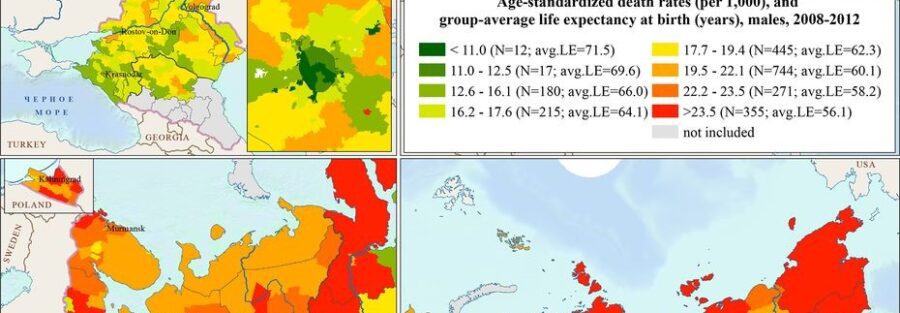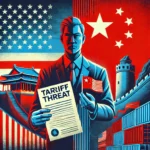“Bus number seven wasn’t running this morning,” wrote Olga Slatina on social media from Russia’s Sverdlovsk region in the Ural Mountains. “The dispatcher said it wouldn’t be available because there was no one to drive it.”
While Slatina’s local bus driver in Kamensk Uralsk might have simply been out sick that day in late October, a broader labor shortage is increasingly disrupting daily life. Since Moscow deployed troops to Ukraine in February 2022, businesses, workers, recruitment agencies, and officials report widespread workforce challenges.
Heavy recruitment efforts by the armed forces and defense industries have pulled workers from civilian sectors, compounded by emigration. This has driven unemployment to a historic low of 2.3%, according to data from the Rosstat statistics service released on Wednesday.
Massive increases in defense spending helped Russia avoid the dire economic collapse many had predicted in 2022, both domestically and internationally, resulting in only a slight contraction that year.
The economy rebounded in 2023, but challenges such as labor shortages, interest rates soaring to 21%, and persistent high inflation are exposing underlying vulnerabilities.
President Vladimir Putin has identified the labor shortage as a significant challenge for Russia’s economy and prioritized improving the country’s labor productivity index as a key national development goal. Additionally, Russia is working to promote higher birth rates by encouraging women to have more children.
In Sverdlovsk, a region known for its numerous defense sector factories, there were 54,912 job openings at the beginning of October, compared to just 8,762 unemployed individuals, according to the regional labor department.
Meanwhile, in the central federal district, which encompasses around 40 million people in western Russia, there are nine job vacancies for every unemployed person, according to Igor Shchegolev, the president’s special envoy to the region, speaking on Tuesday.
Russian recruitment platform Super job reported that job vacancies across the country have increased by 1.7 times over the past two years and by 2.5 times in the industrial sector. According to the central bank, 73% of Russian businesses are now experiencing staff shortages.
“The ‘personnel famine’ has become a widespread phenomenon, affecting nearly all areas of the economic system,” said Rostislav Kapelyu shnikov, deputy director of the labor research center at Moscow’s Higher School of Economics (HSE), in a report.
Reuters interviewed more than a dozen companies, workers, recruiters, and economists from sectors including construction, agriculture, and IT. A consistent issue emerged: workers are in short supply, and the outlook for improvement remains grim.
‘THERE ARE NO MEN’
Russia’s long-standing labor shortages, partly due to a low birth rate, have worsened since the launch of Moscow’s “special military operation.” Tens of thousands of potential workers have joined the military, while many others have emigrated.
Simultaneously, the defense industry ramped up hiring.
“You had this semi-defunct factory in your region making shock absorber springs for defense plants, barely surviving. Now, it’s inundated with orders—suddenly, a lot of springs are needed,” said a source at an industrial company who requested anonymity due to the sensitive nature of the topic.
Another source from a civilian enterprise mentioned that many workers are now assembling drones in Tatarstan’s Alabuga special economic zone.
“The pay there is significantly higher,” the source explained. “A friend who works there said they barely have time to spend the money because they’re working constantly.”
Defense orders must be fulfilled, and demand for workers will only decline when those orders decrease, according to Andrei Gartung, head of a forging and pressing plant in Chelyabinsk.
No slowdown appears imminent. During a recent visit to tank manufacturer UralVagonZavod, former president and senior security official Dmitry Medvedev assured employees there would be “plenty of work” ahead.
Natalia Zubarevich, a professor at Moscow State University, noted the difficulty civilian industries face in competing with the defense sector.
“The defense industries face no limitations—they’ve received massive funding, allowing them to raise wages and attract workers from other sectors,” she explained.
In Sverdlovsk, individuals signing up to fight in Ukraine are offered a one-time bonus of 2.1 million roubles ($18,560), nearly 25 times the average monthly wage in Russia.
A representative from a local recruitment agency added that many clients have lost workers to the military.
“They say: I used to have 100 employees, but now there are no men left.”
BUILDERS, FARMERS, POLICE
While labor shortages are significant across sectors like manufacturing, logistics, and IT, they are most pronounced in construction, where they are driving up costs, delaying projects, and affecting quality, according to Lydia Kataskina, HR Director at Glavstroy.
Sergei Pakhomov, director of the Urals-based development firm Golos Group, said his company now has to carefully assess whether to take on new projects.
“It’s not about a lack of money, but about whether there will be enough workers to show up at the construction site,” he explained, warning that the issue is likely to grow worse over the next five years.
Around 200,000 people, or 3.3% of the total agricultural workforce, left the sector in 2023, according to Agriculture Minister Oksana Lut.
The InterAgroTech association of agricultural producers stated that the labor shortage is impacting all stages of farming, from sowing to harvesting, and is negatively affecting crop quality and safety.
The shortage is also affecting the Ministry of the Interior, which oversees the police force. Valentina Matvienko, speaker of Russia’s upper house of parliament, highlighted this issue, revealing that the number of unfilled positions had doubled in two years, reaching 173,800, or 18.8% of the total staff, by early November.
“What kind of work quality, what kind of law and order can we expect, especially in areas like migration and drug control?” Matvienko questioned.
MIGRANT SHORTAGE
Companies, including the leading retailer X5, are eager to digitize, but as the central bank pointed out, Western sanctions make it challenging to import necessary equipment from abroad.
Last week, Economy Minister Maxim Reshetnikov urged regional authorities to recruit young people, pensioners, and people with disabilities, while also relaxing restrictions on overtime work.
However, restrictions on migrant labor remain in place, despite business lobby group RSPP reporting that two-thirds of companies are struggling to attract the foreign workers they need.
Andrey Kostin, CEO of VTB Bank, stated this week that without migrant workers, Russia’s economy will struggle.
“It’s easy to expel them, but someone has to do the work,” he remarked.
Economists and recruiters predict that Russia’s labor shortage will continue to worsen, which could slow economic growth.
The Russian economy ministry has forecasted that GDP growth will decline from an estimated 3.9% this year to 2.5% next year.





